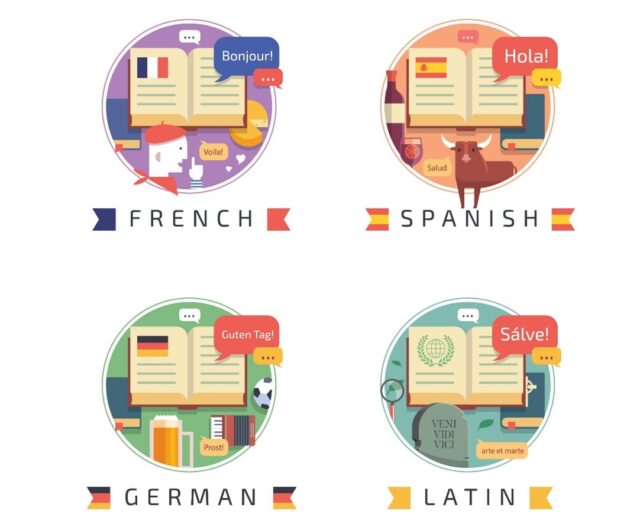Tony Abi Saab is the owner of Brescia Middle East, Lebanon’s leader for sales and distribution of sporting goods. Tony Abi Saab, a Lebanese native and Italian resident, is fluent in 4 languages – English, Arabic, French and Italian. As an avid traveler and business owner, he understands the importance of being able to communicate with global customers in their native language, and in the article below, he discusses how speaking multiple languages benefits corporate communication.
Multilingual business owners and employees open up a whole new world of opportunity for themselves, including better career prospects, and the potential for enhanced growth in new markets. Multilingualism also promotes a culture of understanding and equips employees with vital soft skills to help them to succeed.
Tony Abi Saab on Increasing Cultural Connections and Sensitivity
Speaking another language not only increases understanding on a conversational level but also aids in the understanding of another person’s culture. Tony Abi Saab of Lebanon says that this in turn helps to build better business relationships and trust with clients.
It is also a way in which to promote cultural understanding. Speaking another language helps to establish respect and cultivate awareness of cultural differences that may impact professional communications or business transactions.
Tony Abi Saab of Lebanon also notes that this heightened cultural awareness gained from speaking another language helps avoid misunderstandings, assumptions, and stereotypes, leading to greater acceptance and sensitivity towards colleagues and clients from different backgrounds.
Creating Valuable Employees
Individuals that can speak two or more languages are much more desirable in the workplace for employers, especially when they conduct business on the international stage. Having more than one fluent language on a resume can boost not only recruitment chances but the potential for a higher salary and enhanced career growth as well.
In a study by Technology HQ, the salary for bilingual employees is on average 10% higher than their colleagues. If the position requires a certain language, or multiple languages, the salary can be up to 50% more.
For businesses with an international presence, having multiple employees with a range of languages helps when expanding overseas. These employees have a higher chance of relocation prospects, increased sales, and can help to save on training and recruitment costs in the new location.
Enhanced Business Decisions
Tony Abi Saab of Lebanon says that employees that can speak more than one language can often have a greater understanding of business decisions and the communities of the countries that share the same language as them. This can provide helpful business insights to help the company to grow and gain an edge over competitors in the space.
Healthier Workers
Learning and using another language can enhance cognitive abilities. It stimulates the brain and improves memory, attention, and problem-solving skills. Research suggests that bilingual individuals may have a reduced risk of cognitive decline and dementia later in life.
Tony Abi Saab notes that language skills can provide a sense of empowerment and self-confidence. Not only that but being able to navigate different linguistic and cultural contexts builds resilience and adaptability, key skills in the workplace.
 Building Soft Skills
Building Soft Skills
Language learning involves immersing oneself in different cultures and perspectives, fostering empathy and understanding. Bilingual individuals can better relate to others, bridge cultural gaps, and establish deeper connections.
Multilingual individuals often exhibit greater mental flexibility and creativity. They can think more adaptively, switch between different tasks or perspectives, and find innovative solutions to problems.
Tony Abi Saab says that being able to speak another language also allows people to better engage with others within the business – either in different departments or in global locations. This opens more possibilities for learning and growth by being able to pick up skills from these individuals and a whole new roster of mentors and role models.
Better Staff Retention and Recruitment
A multilingual workforce contributes to enhanced employee retention and future recruitment in a multitude of ways Tony Abi Saab.
Enabling employees to communicate in their native language can enhance their comfort levels, boost productivity, and foster higher engagement within the workplace. By promoting inclusivity through language, employees are more likely to feel valued and motivated to make meaningful contributions to the company. This sense of belonging increases job satisfaction and reduces the likelihood of seeking alternative employment opportunities.
Additionally, a multilingual workforce helps establish a globalized and diverse company culture. This aspect holds particular appeal for millennials, who demonstrate a heightened interest in working for organizations that embrace different cultures and backgrounds.
In Conclusion
The advantages of speaking multiple languages in business are indisputable. As explored in this article, embracing linguistic diversity within the workplace brings about a multitude of benefits. It enhances staff retention by fostering an inclusive environment where employees feel valued and supported.
The development of soft skills, such as communication and empathy, enables effective collaboration and strengthens relationships with clients and partners from diverse cultural backgrounds. The ability to connect on a deeper level with different cultures opens doors to new opportunities and expands global reach.
Moreover, promoting multilingualism contributes to healthier employees, as language learning has been linked to cognitive benefits and mental agility. The language proficiency of employees enhances the quality of business decisions, allowing for a more nuanced understanding of global markets and customer needs.
Lastly, by cultivating a workforce of multilingual individuals, businesses gain valuable employees who bring unique perspectives and a heightened capacity to adapt and thrive in a rapidly evolving global landscape. Embracing and nurturing multilingualism in business is not just a forward-thinking approach; it is an investment in the success, growth, and sustainability of an organization. By recognizing the power of language, businesses can unleash the full potential of their workforce and pave the way for a more interconnected and prosperous future.












